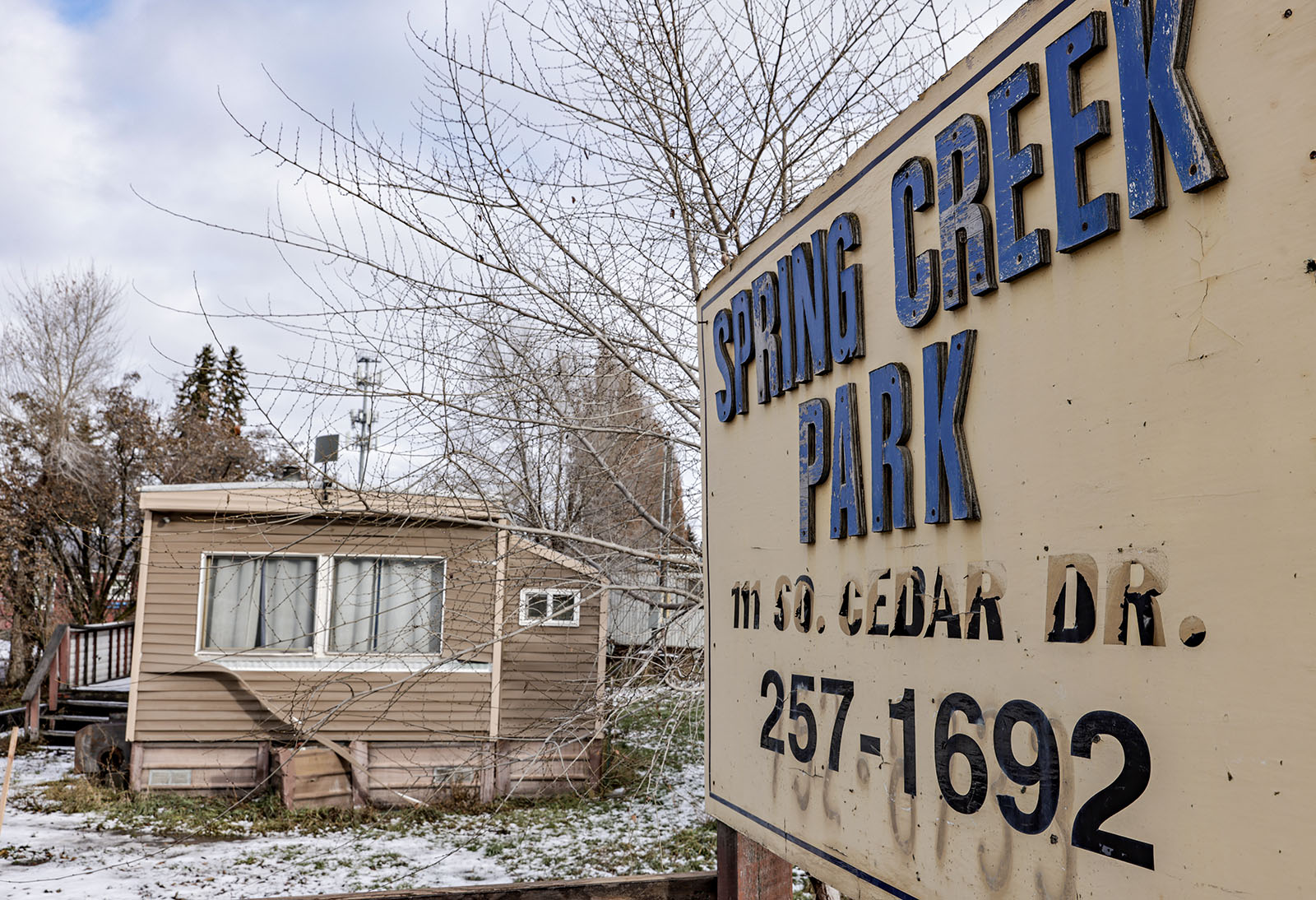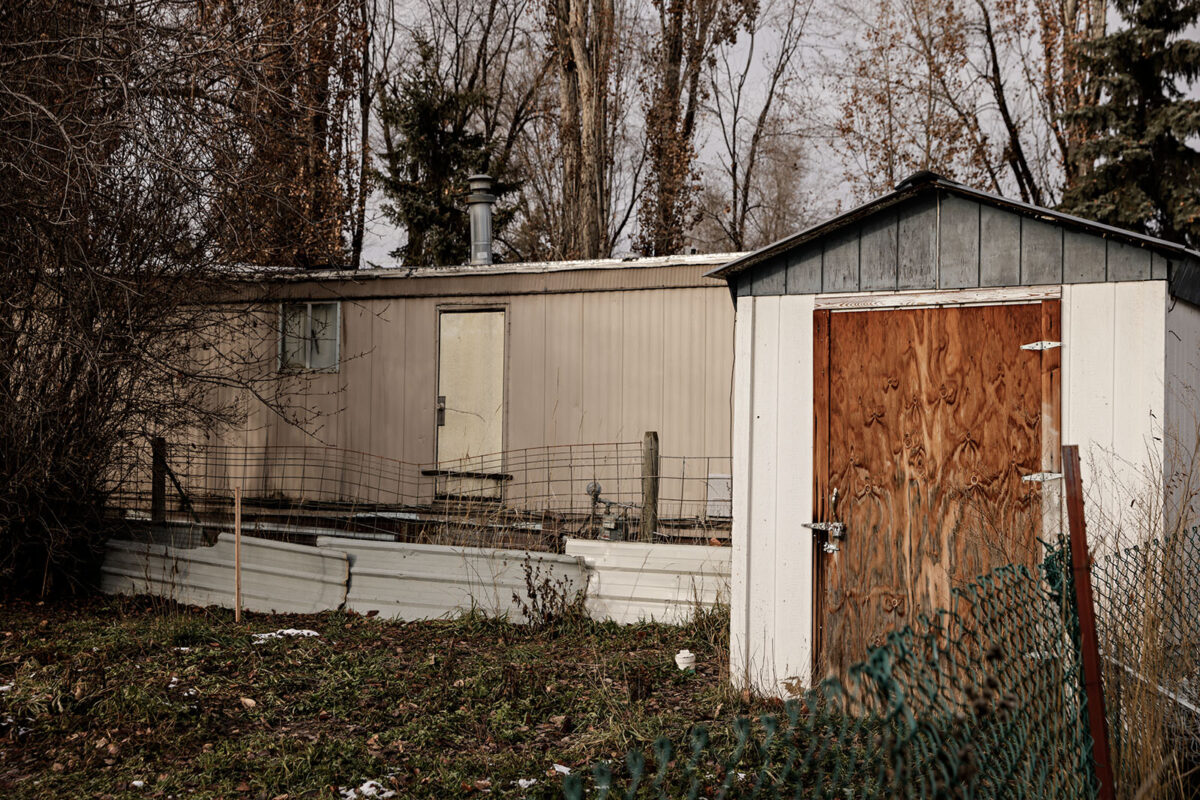In Aftermath of Evergreen Mobile Home Evictions, Agencies Partner to Relocate 26 Households
NeighborWorks Montana and the Whitefish Community Foundation established an emergency relocation fund for Spring Creek Mobile Home Park tenants who last year faced eviction, but a case study reveals significant impacts like stress, social isolation and family fractures
By Maggie Dresser
Last year when the residents of Spring Creek Mobile Home Park on South Cedar Drive in Evergreen received a 180-day eviction notice shortly after new owners took over to redevelop the property, Stephanie Pestowski worried about where she and her family would go and if they could even move their 1970s era trailer.
Since their trailer was older than 20 years, it wasn’t structurally sound enough to be relocated, and no other mobile home parks would have accepted it. A lender informed her she didn’t qualify for a home loan, and many rental options wouldn’t accommodate the needs of her son, who was 7 years old at the time and has special needs.
But shortly after learning about the eviction, Danielle Maiden of NeighborWorks Montana, a local housing nonprofit, partnered with the Whitefish Community Foundation to establish a tax-deductible emergency relocation fund. The solution helped ease the financial burden for residents, many of whom are low-income and senior citizens, to help them move.
In addition to the raised funds, a $45,000 Emergency Response Grant provided through the Whitefish Community Foundation helped provide 26 households with $5,000 for relocation. Funds were administered directly to vendors for expenses like security deposits, rent payments, down payments for homes or RVs, and storage unit rentals.
“We got out and into another mobile home with their help,” Pestowski said.
Pestowski was forced to leave their trailer behind at Spring Creek — which came with complications — but she was able to use the $5,000 for a down payment. She and her family now live on an acre of land in a single-wide trailer.
All 26 households were successfully relocated as of June with help from NeighborWorks Montana and the Whitefish Community Foundation, where staff helped create custom plans for residents who suddenly faced housing instability.
“Because of this program, no households ended up unhoused — a huge win in a situation that could have had far worse outcomes,” Danielle Bundrock, the Cooperative Housing Director at NeighborWorks Montana, said in a press release.
NeighborWorks Montana this year published a case study highlighting the Spring Creek Mobile Home Park, which revealed the outcomes of the eviction and subsequent relocation efforts.
According to the study, most households owned their homes in the park and wound up in rental situations after the relocation. Of the 26 households, four now own single-family homes or townhouses, seven rent an apartment while the remaining households own or rent manufactured homes or RVs on their own land or rented property. Others moved in with family.
While 20 households stayed in the area, one moved to Havre while five left the state, some who were forced to split up their families.
Follow-up interviews conducted by NeighborWorks showed a significant impact to many residents, which included the split of several families while the stress contributed to declining health of some residents. Children with special needs also did not adapt well to the transition while others lost “specialized learning support” following the move.

The study also concluded that social connections were fractured for many families following the relocation. While some improvements in physical health were reported, there were also significant declines in mental health and social isolation.
While Pestowksi is grateful to have a new mobile home, her family is still dealing with tremendous stress from the move, which includes a conflict with Spring Creek’s new owner, Brett Kelly, surrounding her old mobile home and title transfers. She also feels isolated.
“We miss all of our neighbors,” Pestowski said.
The eviction also significantly impacted residents’ sense of financial security, with many feeling ill equipped to handle a financial crisis in the future.
Even as NeighborWorks Montana calls the relocation effort a success, they recognize the situation at Spring Creek as a “systemic problem” and concluded a statewide initiative is needed to “support resources more consistently.”